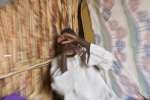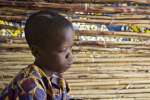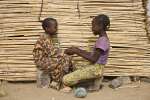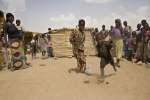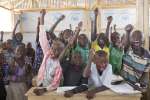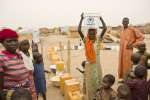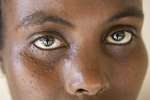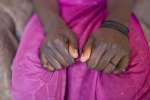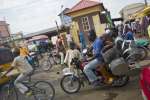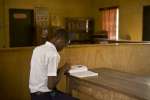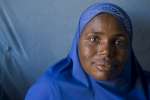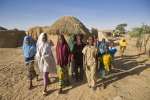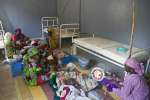Justice, Development and Peace Commission, Catholic Diocese of Ijebu-Ode
NGO Directory, 27 October 2011
Address:
Bshp. Emeritus Compound, Off Erunwon Road
P.O. Box 1923
Ijebu-Ode, Ogun State
Nigeria
Tel: +234 37 432 268
Fax: +234 37 432 139
Web: www.catholic-hierarchy.org/diocese/dijeb.html
Victims of Conflict in Nigeria Find Safety in Cameroon Camp
UN High Commissioner for Refugees António Guterres visited Cameroon in late March to put a spotlight on the situation there of tens of thousands of refugees from Nigeria. These people have escaped mounting violence by insurgents in the north-east of their country. Among the places that Guterres visited during his March 24-25 visit is the Minawao Refugee Camp, where many of the uprooted have been relocated.
Situated some 120 kilometres from the dangerous border area with Nigeria in Cameroon's Far North region, Minawao camp is currently home to 33,000 Nigerian refugees, mainly from Borno state. Many of the arrivals are traumatized and in need of material and psycho-social help. They told the High Commissioner of losing their homes and belongings as well as members of their families. Some were injured. In total, an estimated 74,000 Nigerians have found refuge in Cameroon while cross-border incursions from Nigeria have displaced 96,000 Cameroonians. UNHCR photographer Hélène Caux also visited Minawao to hear the individual stories.
Victims of Conflict in Nigeria Find Safety in Cameroon Camp
Nigeria: The Casualties of Conflict
One year after the Nigerian government declared a state of emergency in the northern states of Adamawa, Borno and Yobe, violence continues to displace people within Nigeria and to neighbouring Cameroon, Chad and Niger, including some 22,000 Nigerian refugees. Civilians trapped at home face recurrent attacks by insurgents, with a series of kidnappings and killings culminating in mid-April this year in the abduction of more than 200 girls from a school in Chibok, Borno.
UNHCR's Hélène Caux recently travelled to the region to meet with some of the 250,000 internally displaced, including students caught up in the violence. Those she spoke to told her about their fears, and the atrocities and suffering they had endured or witnessed. People spoke about their homes and fields being destroyed, grenade attacks on markets, the killing of friends and relatives, and arbitrary arrests. Uniting them is an overwhelming sense of terror. Caux found it a challenge to photograph people who live in constant fear of being attacked. "It was this delicate balance to try to achieve between featuring them, communicating their stories and protecting them," she said.
Nigeria: The Casualties of Conflict
Thousands Start Afresh in Niger After Fleeing Nigeria
In May 2013, the Nigerian government, responding to a surge in violence in the north-east of the country, declared a state of emergency in the volatile states of Borno, Adawama and Yobe. Many people fled to neighbouring Niger's Diffa region and to the Far North Region of Cameroon. Fresh violence in January this year has forced thousands more to flee to both countries. UNHCR photographer Hélène Caux visited the towns of Bosso and Diffa in Niger's Diffa region shortly before the latest influx. She met some of the Nigerian refugees who had fled earlier waves of violence across the border. They told her of the violence they had seen, the losses they had suffered and their attempts to lead as normal a life as possible in Diffa, including sending their children to attend school. They are grateful to the communities that have welcomed and helped them in Niger.
Thousands Start Afresh in Niger After Fleeing Nigeria


Nigeria: Back to school
When gun-toting Boko Haram insurgents attacked villages in north-eastern Nigeria, thousands of children fled to safety. They now have years of lessons to catch up on as they return to schools, some of which now double as camps for internally displaced people or remain scarred by bullets.


Nigeria: Homeless in their own country
Boko Haram's bloody insurgency made at least two million Nigerians homeless in their own country. As large swathes of the northeast remain no-go areas, UNHCR and other partners are providing vital aid, including bedding and cooking utensils to those driven into internal exile.


Cameroon: Escape from Nigeria
Attacks by Nigerian insurgents have spread to neighbouring countries in recent months, severely restricting the 'humanitarian space' aid organisations, like UNHCR, can operate in to help people made homeless by the unrest. The insurgents have also recently mounted a series of suicide attacks in Cameroon - the first such attacks in the country.





